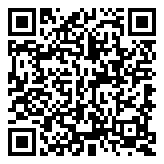Workshop: The Future of Open Source
In the decades since the term was first coined, open-source software has become a foundation for the Internet. Around three-quarters of businesses leverage open-source software in some form, from giant companies like Amazon, Microsoft, and Google, to leading non-profit and community-based projects like Wikipedia and Creative Commons. However, the proliferation of dystopian technologies which may be built on the backs of open source programs, such as all-powerful facial recognition and surveillance networks and even autonomous weapons systems, has led some to question the foundational belief in the ethical neutrality of technology which has traditionally been at the core of the open source movement. At what point should our optimism about the transformative impact of new technologies give way to a more nuanced understanding of the harms and risks that have begun to manifest, and how should these considerations be reflected in our approach to licensing?
This panel series will explore the interplay between ethics and open source licensing, and in particular will consider whether proposals to embed human rights principles into new standard-form open source licenses are practical, legally effective, and beneficial to ongoing efforts to support human rights in the tech space.
Panel 1 – The Origins of the Debate
October 12, 12 pm – 1:30 pm PT
This first panel will introduce the international open-source movement, as well as the ethical questions which permeate the current debate:
Panelists:
– Mitch Stoltz, Senior Staff Attorney, Electronic Frontier Foundation
– Enrique Piracés, Human Rights Technology Program Manager, Center for Human Rights Science at Carnegie Mellon University
– Abigail Cabunoc Mayes, Technical Program Manager, Mozilla
Moderator: Charity Ryerson, Executive Director & Founder, Corporate Accountability Lab
Panel 2 – Conditional Licensure, Ethics and the Law
October 14, 12 pm – 1 pm PT
Ethical open-source licensure offers potential benefits but also challenges to the traditional status quo underlying the open-source movement. This panel will address questions regarding the costs and benefits related to an embrace of conditionality in open-source licenses:
Panelists:
– Sameeul Haque, Staff Attorney, Corporate Accountability Lab
– Luis Villa, Co-Founder and General Counsel, Tidelift
– Karen Sandler, Executive Director, Software Freedom Conservancy
Moderator: Michael Karanicolas, Executive Director, UCLA Institute for Technology, Law & Policy
Panel 3 – The Ethical Stack
October 15, 12 pm – 1:30 pm PT
Licensure is one component of efforts to promote ethics and responsibility across the tech industry, but how does it fit within the broader accountability ecosystem? This panel will explore questions of ethics and accountability more broadly:
Panelists:
– Sarah Hinchliff Pearson, Senior Counsel, Creative Commons
– Coraline Ada Ehmke, Founder and Executive Director, Organization for Ethical Source
– Stephen LaPorte, Legal Director, Wikimedia Foundation
Moderator: Nathan Schneider, Assistant Professor of Media Studies, University of Colorado

